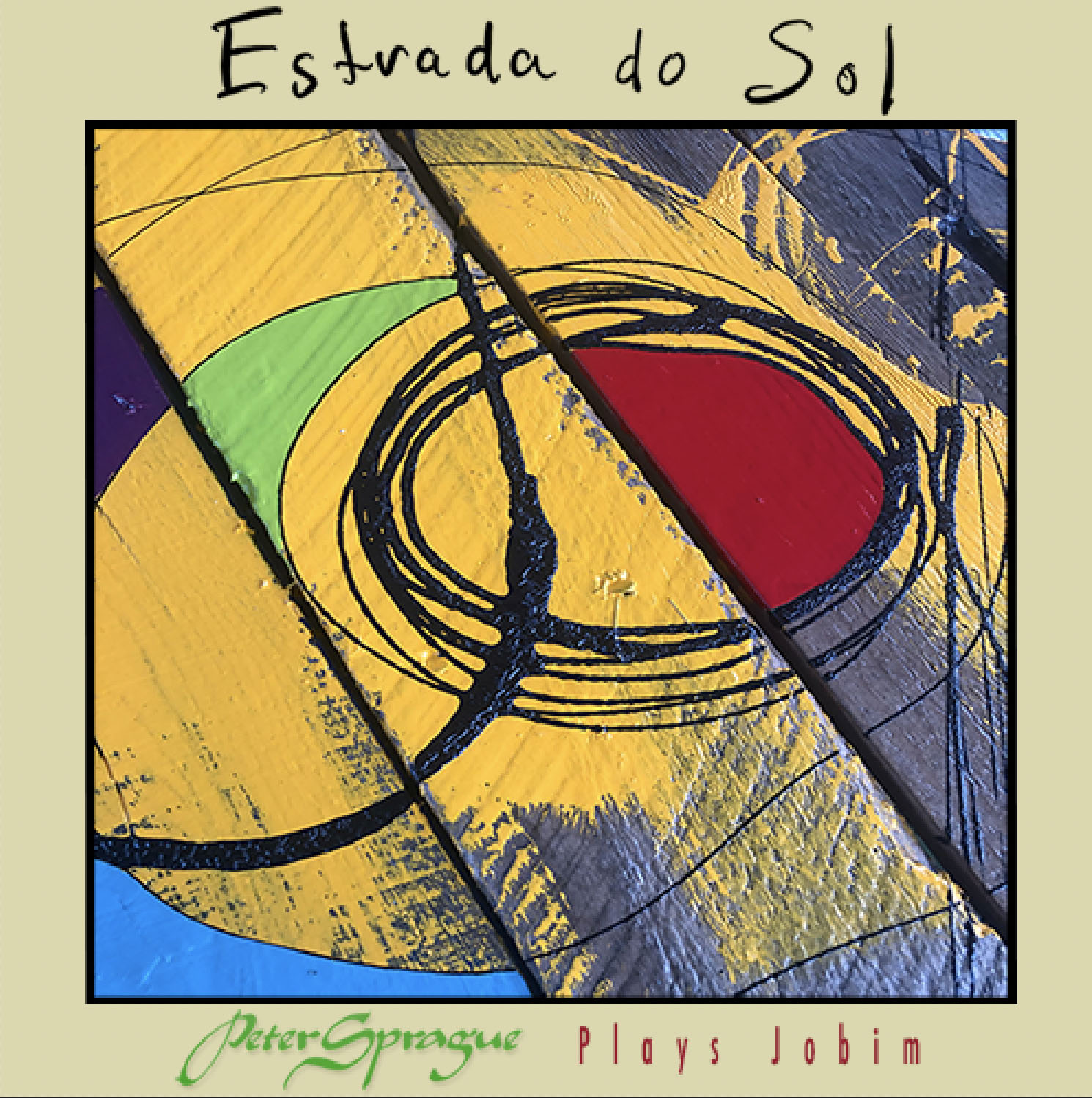CD Reviews
PETER SPRAGUE: Estrada do Sol

His new recording finds local guitarist Peter Sprague in what is likely his musical happy place: surrounded by friends and family, playing his beloved Brazilian bossa nova.
While Sprague has indicated in various interviews over the years that the Beatles were his first musical love (a point that classical guitarist Fred Benedetti also made in introducing Sprague at least year’s San Diego Music Hall of Fame induction), Brazilian wasn’t too far behind. On Sprague’s first recording, with the Dance of the Universe Orchestra (self-released in 1978), Sprague contributed Carnival Dreams, a samba-infused jazz number.
There were no Beatles covers on that album, for the record.
He revisited that track the next year on his first recording as leader of Dance of the Universe and added another original song in a Brazilian vein, “Samba Satchidananda.” In the years since, there have been other tracks with a bossa nova or samba vibe on his outings, including a 1991 album with vocalist Kevyn Lettau and percussionist Michael Shapiro titled Brazil Jazz (much of which wasn’t), and Samba Andaluza from 2018, a chamber jazz outing with his string trio. (And on the 2004 album Peter and his brother Tripp recorded with their father, Hall, Hurry Home; Papa Sprague contributed two Brazilian-themed compositions; it’s likely a family thing.)
But this is apparently Peter’s first full album of straight-ahead Brazilian jazz—and every song but one is from the pen of Antônio Carlos Jobim.
Joining Sprague is his brother Tripp, on reeds and flutes, and longtime cohorts Duncan Moore (drums), Danny Green (piano), and Justin Grinnell (bass). Beth Ross Buckley also contributes flute, while local vocalist Allison Adams Tucker fronts the project.
Tucker in particular brings a certain grounding to this album, as much, perhaps most, of her career as a singer has been focused on the Brazilian canon. She comes off as completely comfortable singing in Brazilian Portuguese and seamlessly switches between Jobim’s language and the English of most of her audience.
The band starts out with perhaps Jobim’s best known and most-often recorded song, “Girl from Ipanema.” They open with a two-voice horn chorus, sax, and flute before Peter comes in on acoustic guitar—and is quickly doubled by Green on piano. This is followed by a few bars with flute on lead before a pause leads to Green inserting a short riff from Gershwin’s Rhapsody in Blue and then handing the original theme back to Sprague and the horns for a few bars until Tucker takes lead on vocals. It’s a wonderfully original, swinging arrangement that presents an utterly fresh perspective on a classic tune.
“Triste” never achieved the pop culture status of “Girl from Ipanema,” but it was covered by both Ella Fitzgerald and Sarah Vaughan. Sprague and Tucker play this one pretty straight ahead, Tucker delivering the first verse in English before reverting back to Portuguese, with Sprague and Green softly comping behind her.
“Água De Beber” opens with Grinnell and Moore laying down the rhythm for a few bars before everyone else jumps in. Tucker scats a bar before jumping into the English lyrics. Green’s extended solo halfway through the song is a stylish extrapolation of the theme, reworking it eight ways from Monday before he hands it off to Sprague on acoustic guitar – who takes that improvisation into even higher orbit before bringing it back to center. Grinnell and Tripp (tenor sax) then take equally imaginative solos before Tucker takes them all to the finish.
Translated with a subtitle of “Quiet Nights of Quiet Stars,” “Corcovado” is likely Jobim’s second best-known song, with a definitive reading by the husband and wife vocal team of João and Astrud Gilberto on Stan Getz’s 1963 recording. Here, the track opens with Grinnell and Sprague improvising on the theme before Green slips in on piano. We don’t hear that delicious melodic theme of Jobim’s until a minute into the song when flute comes in on lead, then a second flute join in. Even then, it’s largely interpolations on the melody until Tucker delivers the first verse on vocals nearly halfway through the song. Green’s piano accompaniment is light, unobtrusive, yet absolutely vital to what she is doing on voice. It’s akin to listening to Mike Wofford accompany Sarah Vaughan, or Paul Smith behind Ella Fitzgerald. (It’s worth pointing out that both Wofford and Smith grew up in San Diego.)
Underrecorded Jobim gems such as “Fotografia,” “Meditation,” and “A Felicidade” all get lovely treatments as well.
The album closes with an unlisted bonus Sprague original, “Saudade De Voce.” This is at least his third time recording it, having also visited it on Samba Andeluza and on the 2012 Road Work Ahead album Intersection. In this version, the song begins with Sprague slowly picking out the lead while Green harmonizes behind him before they double on the theme with what sounds like Grinnell bowing the bass behind them. It is by far the shortest version he’s yet recorded, clocking in at only 2:20, but it is just gorgeous.
Which can also be said of the album as a whole.










